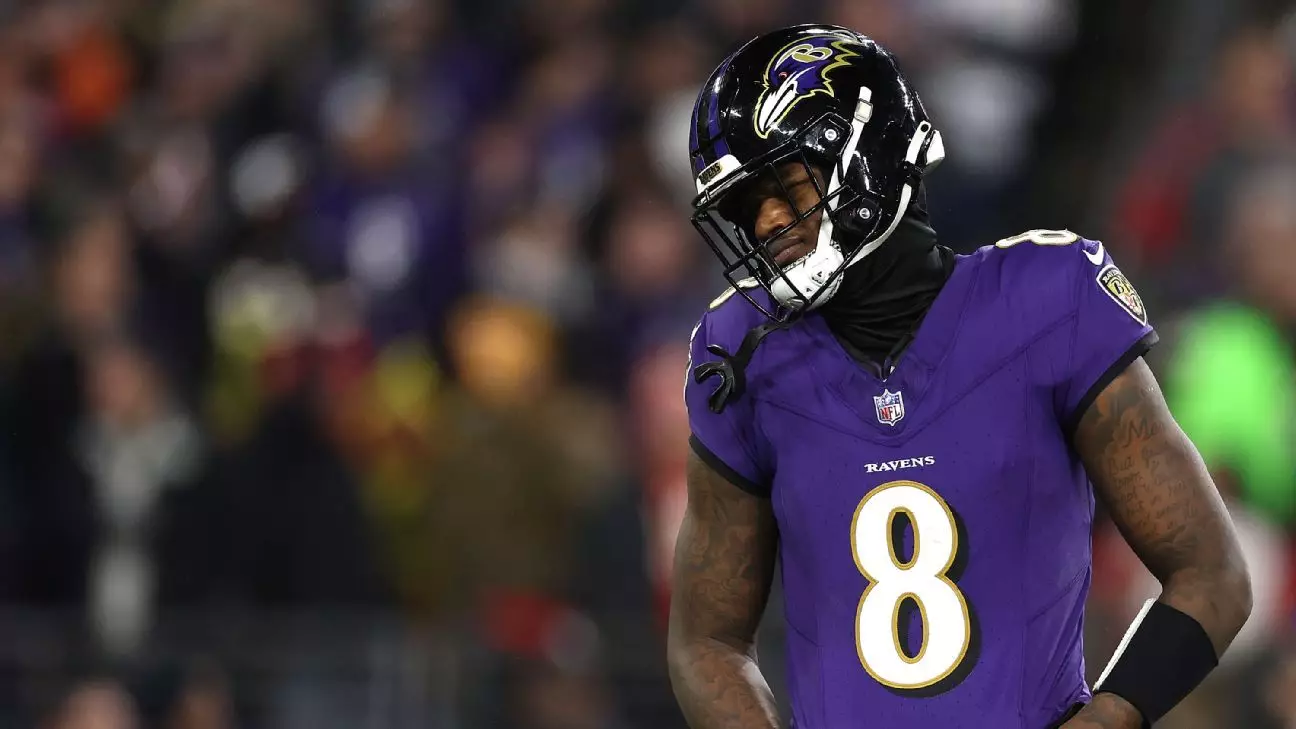The world of sports is filled with iconic numbers that often transcend the players who wear them. Among these, the number 8 holds significant weight, donned by legends in various sports, including Lamar Jackson, the current NFL MVP, and Troy Aikman, a Pro Football Hall of Fame quarterback. This article delves into a recent legal tussle between these two athletes, as Jackson challenges Aikman’s trademark claims over their shared number, prompting an analysis of intellectual property rights within professional sports.
Lamar Jackson isn’t just a dynamic quarterback for the Baltimore Ravens; he’s also a savvy entrepreneur. Jackson has pursued several trademarks associated with the number 8, effectively branding it as part of his identity. With applications that include phrases like “Era 8 by Lamar Jackson” and “You 8 yet?”, Jackson has invested considerable resources into establishing the number’s association with his athletic persona. According to his attorney’s filings, the assertion is that Aikman’s use of “EIGHT” on various merchandise—ranging from apparel to beach towels—could mislead consumers about the source of these products. This move challenges not only Aikman’s right to the number but also sets a precedent for how athletes can protect their brand identity.
On the other side of this dispute is Troy Aikman, who wore the number 8 throughout his illustrious career with the Dallas Cowboys and continues to be a recognizable figure as an ESPN Monday Night Football analyst. Aikman’s organization, FL101, has filed trademark applications for the same use of “Eight,” which creates a direct contention point with Jackson. The core of the conflict rests on whether consumers would mistakenly associate Aikman’s products with Jackson’s brand due to the similar usage of the number. The question at hand is not merely about a number but what that number signifies and who holds the rights to claim it in the commercial marketplace.
Intellectual property law in the United States allows for a wide array of trademark protections, extending beyond names and logos to include numbers, sounds, and even scents. Law professor Christine Farley articulates that it is indeed possible to have a trademark claim on a number, given that it is used in a distinctive manner that identifies a source of goods. The U.S. Patent and Trademark Office (USPTO) database shows a substantial number of current and pending trademarks that incorporate the word “eight” or the numeral “8,” illustrating the crowded field in which both Aikman and Jackson are navigating.
The ultimate issue may hinge on consumer perception and whether a typical purchaser could confuse products due to the similarity of Jackson’s “Eight” branding with Aikman’s trademarks. Aikman’s legal team may argue that the presence of a number inherently reduces the likelihood of confusion among buyers. This could further complicate the determination of who ultimately has the better claim to a number that has been celebrated and donned by various sports legends.
The Implications for Athlete Branding
As this dispute unfolds, it raises critical questions about the nature of athlete branding in today’s sports landscape. The increasing importance placed on personal branding means that athletes like Jackson and Aikman fiercely protect the identifiers they’ve created throughout their careers. If Jackson garners a legal victory, it could reshape the understanding of trademark ownership in relation to jersey numbers, prompting other athletes to explore similar avenues for their own brand protection.
The ongoing dispute between Lamar Jackson and Troy Aikman over the trademark use of “Eight” exemplifies the complex interplay between sports fame and intellectual property rights. As both parties prepare to make their case, the implications extend beyond just these two athletes. The outcome could influence how numbers are viewed within the sports industry and establish important legal precedents for future athlete branding endeavors. Ultimately, this battle is not just about a number; it is a significant reflection of the evolving dynamics of athlete identity and commercial rights in the modern era.


Leave a Reply